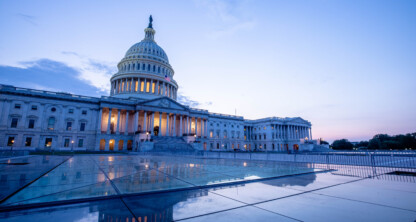
Joel E. Meister
Partner
Joel Meister represents financial institutions and developers involved in a variety of complex project development and project financing matters. As a partner who works within our Finance Practice and Energy & Infrastructure Sector, his finance work focuses on tax credit sales and tax equity financings like partnership flips, inverted leases, and sale leasebacks, in addition to project M&A and debt financings, primarily for solar and other energy technologies totaling gigawatts of electric generating capacity in the United States.
Since 2013, Joel has developed an extensive project development practice advising clients on the development, acquisition, and financing of battery energy storage projects, hydrogen, and other innovative energy transition technologies, on a standalone basis and paired with energy generation – from distributed residential and C&I applications to some of the largest energy storage projects in the world. His practice spans the structuring of key project agreements (battery supply, electrolyzer and equipment procurement contracts; SCADA and BESS subcontractor agreements; EPC, BOP, and other construction contracts; O&M, and long-term service contracts; solar+storage PPAs, tolling agreements, and other offtake agreements, etc.), due diligence, M&A, and financing.
Actively working on clean energy issues since 2008, Joel previously worked on renewable energy and tax credit issues in Deloitte Tax’s Washington National Tax (WNT) office before joining Foley. Joel previously served as assistant general counsel at an energy storage start-up before it was acquired. His duties included all legal and regulatory matters, with an emphasis on project financing structures and energy storage assets’ participation in grid services markets. Joel began his work in the solar industry in 2009 concentrating on tax and financing issues at the Solar Energy Industries Association (SEIA), the national trade association for the U.S. solar industry.
Joel currently serves as the co-host and showrunner of Foley’s energy podcast, Powered by Foley, covering industry developments and Foley’s practice insights. As the energy sector continues to evolve, Joel’s industry analysis and research into the complexities of renewable energy financing has been cited by leading industry publications, the National Renewable Energy Laboratory (NREL), academia, and in congressional testimony.
Energy Storage and Hydrogen Experience
- Tax equity investor counsel for investment in 140 MW/561 MWh battery energy storage project paired with 300 MW solar project in California with five contracted offtakers.
- Sponsor counsel for the acquisition and simultaneous tax equity and debt financing of 300 MW solar and 600 MWh battery energy storage project in New Mexico involving nearly US$1bn in combined capital commitments.
- Sponsor counsel in development and negotiation of various equipment supply and EPC agreements for a 125/500 MWh facility in Nevada.
- Sponsor counsel for negotiation of (1) an engineering, procurement, and construction contract, (2) battery energy storage system equipment supply and long-term services contracts, and (3) a transformer/high-voltage equipment procurement agreement for a 300 MW/600 MWh energy storage project in Texas.
- Tax equity counsel for investment in 100 MW solar project paired with 200 MWh battery energy storage facility in California.
- Sponsor counsel for negotiation of master battery supply contract and long-term services agreement for 561 MWh battery energy storage project in New Mexico.
- Sponsor counsel for negotiation of engineering, procurement, and construction (EPC) contract for 561 MWh battery energy storage project in New Mexico.
- Tax equity counsel for investment in 400 MWh standalone battery energy storage project in California.
- Lender counsel for construction, bridge, and term loan for a standalone battery energy storage project located in a Mountain West state in the U.S. with a capacity of approximately 150MW/600MWh.
- Tax equity counsel for investment in 50 MW/200 MWh standalone battery storage facility in the Southwest U.S.
- Sponsor counsel for the developer of green hydrogen projects in the negotiation of its first electrolyzer supply agreement and long-term services agreement with a global manufacturer.
- Manufacturer counsel in the negotiation of a master framework/supply agreement for up to 3 GW of hydrogen electrolyzers for green hydrogen projects, and corresponding form of long-term services agreement (LTSA).
- Lender counsel for financing of a 70 MW/300 MWh energy storage facility co-located with a solar PV project in Arizona.
- Lender counsel for battery equipment loan for a portfolio of battery energy storage systems with an aggregate capacity of 50 MW/ 155 MWh.
- Investor counsel in negotiation of PPA and Interconnection Agreement amendments to add 80 MW/320 MWh energy storage facility to existing 200 MW solar facility in California.
- Sponsor counsel for the review of a master purchase agreement and master long-term services agreement for two utility-scale battery energy storage facilities in Oklahoma.
- Buyer M&A counsel in due diligence review of 100 MW/400 MWh standalone energy storage facility in California.
- Buyer M&A counsel in acquisition of four development-stage community solar projects in Massachusetts with an approximate aggregate energy storage capacity of 7 MW/15.65 MWh to be added.
- Sponsor counsel in debt and tax equity financings of a portfolio of three Massachusetts community solar+storage projects with aggregate capacity of 18 MW solar PV and 9.5 MWh storage.
- Lender counsel in one of the first debt facilities for a portfolio of four standalone energy storage projects totaling approximately 14 MW/57 MWh in New York that will incorporate tax equity with standalone storage ITC.
- Buyer counsel in the due diligence review for the potential acquisition of a 300 MW standalone battery energy storage project in Texas with contracted and merchant offtake.
- Sponsor counsel in the development of a microgrid comprised of solar, combined heat and power (CHP), and battery energy storage technologies for a commercial property in Puerto Rico, including the negotiation of offtake agreement, construction agreement, and long-term operations & maintenance (O&M) agreement.
- Buyer counsel for due diligence review of a portfolio of nearly 100 distributed/C&I standalone battery energy storage projects at commercial sites in California.
- Sponsor counsel for tax equity investment in nationwide portfolio of distributed solar plus energy storage facilities
Additional Tax Equity, Tax Credit Sale, Project Finance, and M&A Experience
- Tax equity counsel since 2017 for a client’s investments and syndications for over 2,762 MW of solar and energy storage projects across the United States, including in Texas, California, Indiana, Illinois, Kentucky, Iowa, Oregon, Ohio, Louisiana, Arizona, Connecticut, Maine, Maryland, Massachusetts, Michigan, New Hampshire, New Jersey, Nevada, New York, Pennsylvania, Vermont, Wisconsin, Alabama, South Carolina, North Carolina, and Tennessee.
- Tax Credit Seller counsel in the negotiation and closing of a tax credit sale agreement within an existing tax equity partnership-flip structure for over $153 million in tax credits associated with a utility-scale solar project in Texas.
- Tax Credit Seller counsel in the negotiation and closing of a tax credit sale agreement within an existing tax equity partnership-flip structure for up to $86 million in tax credits associated with a utility-scale solar project in Indiana.
- Tax Credit Seller counsel in the negotiation and closing of a tax credit sale agreement within an existing tax equity partnership-flip structure for over $50 million in tax credits associated with a portfolio of utility-scale solar projects in Ohio.
- Tax Credit Seller counsel in the negotiation and closing of a tax credit sale agreement within an existing tax equity partnership-flip structure for over $62 million in tax credits associated with a utility-scale solar project in Indiana.
- Tax Credit Seller counsel in the negotiation and closing of a tax credit sale agreement within an existing tax equity partnership-flip structure for over $213 million in tax credits associated with a portfolio of utility-scale solar projects (250 MW) in Illinois.
- Tax Credit Buyer counsel in the negotiation and closing of a tax credit sale agreement within an existing tax equity partnership-flip structure for up to $150 million in tax credits associated with a utility-scale solar project in Maryland.
- Tax Credit Buyer counsel in the negotiation of three tax credit sale agreements for up to $21.3 million in tax credits associated with renewable natural gas facilities.
- Sponsor counsel for tax equity financing of a portfolio of solar projects in Oregon and New York.
- Seller counsel in the negotiation of the sale of two community solar projects in New Jersey and associated EPC contracts.
- Sponsor counsel for tax equity investment in a portfolio of three solar projects in California with an aggregate generating capacity of 25 MW.
- Sponsor counsel for tax equity financing of 88 MW solar project in North Carolina.
- Sponsor counsel for tax equity and debt financing of 140 MWac portfolio of solar projects in Michigan.
- Seller counsel for client syndication of tax equity investments in a portfolio of four utility-scale solar projects in Ohio and California with an aggregate generating capacity of approximately 400 MW.
- Tax equity counsel in the syndication of an investment in a portfolio of solar projects in Texas with an aggregate generating capacity of approximately 100 MW.
- Tax equity counsel for client investments in several dozen sales leaseback financings of C&I solar projects across the United States
Presentations and Publications
Joel has been a regular author, speaker, panelist, and moderator on clean energy trends. Examples of prior speaking engagements and writing include:
- Co-host and Showrunner, Powered by Foley podcast
- Planning Committee Member, SEIA Finance, Tax, and Buyers Seminar
- Moderator, Solar+Storage Infocast Conference
- Moderator, Solar Power Northeast
- Panelist, SEIA Finance and Tax Seminar
- Guest Speaker, George Washington University Law School
- Article co-author in Tax Notes
- Article co-author in The Tax Adviser
- Article co-author in The Journal of Multistate Taxation and Incentives
In 2013, Joel received the Jamie Grodsky Prize for Environmental Law Scholarship, which is awarded for the best paper written in the field of environmental law by a GW Law JD, LLM, or SJD student. The award is given based on originality, innovation, depth of scholarship, the importance of the environmental issue addressed, and the quality of the writing and analysis.
Foley Names 18 New Partners

Energy Tax Credits Hot Topics

Energy Industry Disputes

Novogradac Energy Conference in DC Highlights Finance & Tax Trends and -Election Tea Leaves




